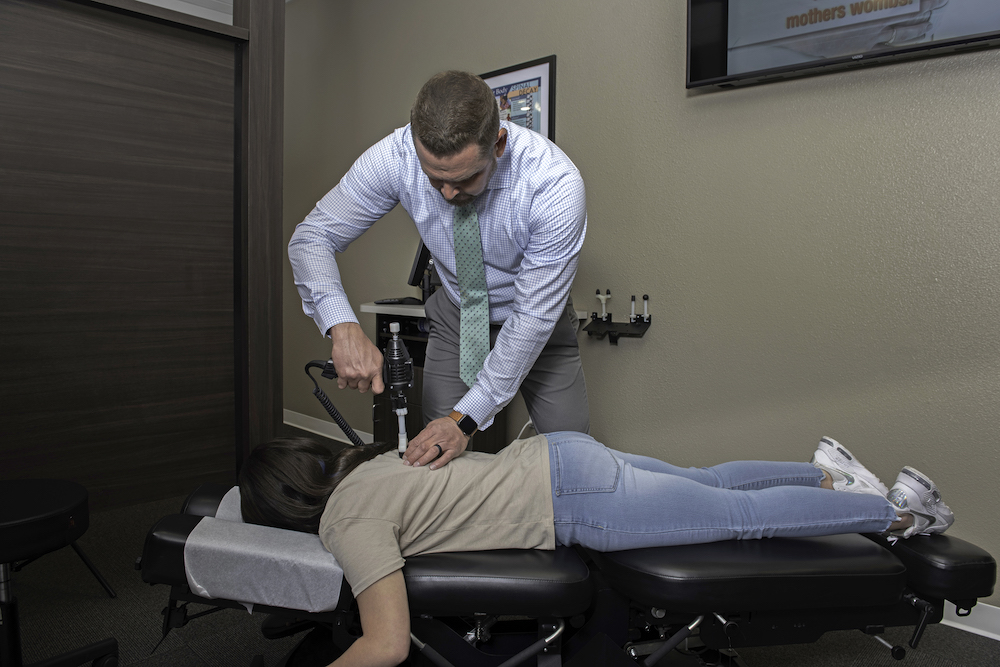What's the Difference Between Sciatica and a Herniated Disc?
5 min read

The pain of an irritated sciatic nerve and a herniated disc are similar enough that many people can’t tell the difference. An irritated sciatic nerve can cause pain from your lower back down to your feet and make walking difficult. A herniated disc is caused when a spinal disc is damaged or it has degenerated which makes some of the fluid from inside leak out. This causes pain in the back and can even irritate the sciatic nerve.
What is Sciatica?
Sciatica is caused by an injury, irritation, compression, or pinching of the sciatic nerve. It can cause tingling, stabbing, burning pain, numbness or weakness in your lower back, buttock, and leg. This type of pain can worsen if you’re sitting or standing for a long time. Twisting of the upper body, as well as sudden coughing or sneezing, can make this pain more intense.
The root cause of sciatica is usually a lower back problem, such as:
- Normal aging - discs can degenerate over time.
- Pregnancy -The extra weight during pregnancy puts extra stress on the spine.
- Small stress fractures - these can cause one vertebra to slip on top of another, leading to pinched nerves.
- Spinal stenosis - this condition, a narrowing of the spinal canal, can compress and irritate nerves that pass through your spine. Spinal stenosis can be caused by arthritis or aging.
- Irritated SI joint - The sacroiliac joint near where your hip joins the spine can be irritated causing the sciatic nerve to also become irritated.
- Extra weight - Added weight on your spine can cause pressure and result in bulging or herniated discs.
An irritated sciatic nerve can either develop slowly or hit you suddenly after an injury. Treating the underlying cause of sciatica is the most effective way to treat this type of back pain and reduce your risk of it happening again.
What Are Treatment Options for Sciatica?
Initial treatment for sciatica is to rest from normal activities for a day or two, gently adding more movement every day. If sciatica pain doesn’t improve after a few weeks, you may want to consider chiropractic treatment for this type of back pain, including:
- Spinal decompression - uses gentle, motorized spinal traction to reduce nerve pressure and pain and increases nutrients to the disks to improve the healing of sciatica.
- Cold laser therapy - uses a low-intensity laser to reduce inflammation and pressure on the sciatic nerve and increase blood flow to promote the healing of sciatica.
- Electrical muscle stimulation - delivers light electrical pulses to the muscles in the lower back to help reduce inflammation and relieve pain.
- Lower back stretches and exercises recommended by your chiropractor - to strengthen the spine and improve the healing of sciatica.
Surgery is rarely needed for sciatica, but it may be recommended if the condition causing the pain doesn’t heal with chiropractic treatments or physical therapy.
What is a Herniated Disc?
A herniated disc is one of the most common causes of lower back pain and a major cause of sciatic pain. Herniation occurs when the normal structure of a disc is disrupted or changed, caused by an injury, excessive strain, or the gradual wear and tear of aging. The disc can burst and leak fluid into the spinal column through a tear in its outer layer.
Herniation is most common in the lower (lumbar) discs or discs in the neck can occur anywhere along your spine but is most common in the lower back and neck.
Symptoms of a herniated disc can vary widely. These symptoms depend on which disc is herniated, the position of the injured disc, the size of the herniation, and which nerve is receiving pressure. Patients may experience a long period of occasional or long-term lower back pain. Many times, a herniated disc will follow.
The most common symptoms of a herniated disc include:
- Back pain that is constant or comes and goes, and worsens when you’re coughing, sneezing or standing for a long time.
- Muscle spasms in your back
- Sciatic nerve pain
- Weak leg or foot muscles
- Numbness or tingling in a foot or leg
- Poor reflexes in the knee or ankle
A herniated disc in the neck can cause:
- Dull or sharp neck pain, or pain between the shoulder blades
- Pain that radiates down an arm to the hand or fingers
- Numbness or tingling in the shoulder or arm affects the ability to lift or hold items.
How is a Herniated Disc Treated?
Initial treatment for a herniated disc is to rest for a few days and avoid strenuous movements. Most people (about 90%) who have a herniated disc get better in a few days to a few weeks. Many spine specialists and chiropractors advise against staying in bed, recommending that you try to move around.
Many patients get pain relief using chiropractic treatments. A chiropractor can develop an individualized treatment plan for a herniated disc based on a physical exam and imaging scans (MRI, X-rays, CT).
Chiropractic treatments can include:
- Spinal decompression - Sometimes a gentle, motorized spinal traction that reduces the nerve pressure and pain often associated with herniated discs can be used. The Flexion-distraction technique uses a special table to gently stretch the spine. The chiropractor can isolate the injured area while flexing the spine and move the disc away from the nerve to reduce inflammation and pain. Ultrasound, muscle stimulation, physiotherapy, and nutritional supplements may be used for spinal decompression as well.
- Cold laser therapy - the light from the laser causes blood to rush to the treatment area, which promotes healing of damaged cells
- Electrical muscle stimulation - light electrical impulses are targeted towards the surrounding areas of pain, and through this stimulations pain is reduced
- Myofascial acoustic compression therapy- highly efficient, non-surgical treatment that promotes the healing of chronic or acute pain in muscles, joints, and tendons
What to Do if You Have Lower Back Pain?
If the pain doesn’t start to get better on its own, it’s important to schedule an appointment with a chiropractor. We can help you find the source of your pain and treat it.
One important thing to note is that a herniated disc can cause sciatic nerve pain, but not all sciatic nerve pain is caused by a herniated disc. There are many reasons for sciatic nerve pain and herniated discs are just one of them.
Whether your back pain is caused by sciatica or a herniated disc, you should know your options for drug-free pain relief. At Village Chiropractic in The Woodlands, we use our state-of-the-art treatments to bring back pain relief. Request an appointment at our location in The Woodlands or Cypress and our chiropractors will help you find the source of your pain and drug-free relief.





